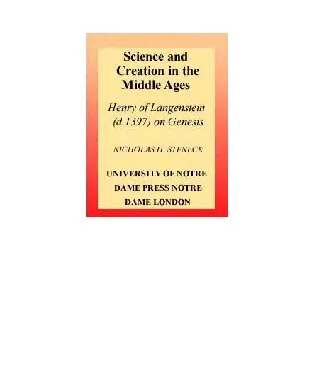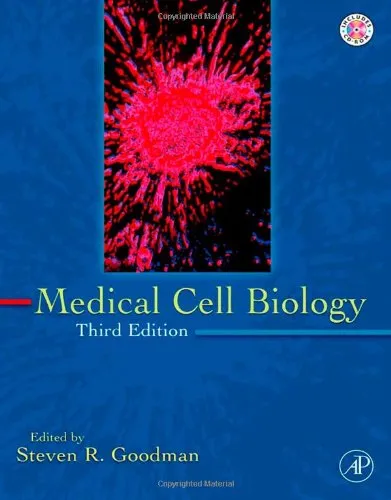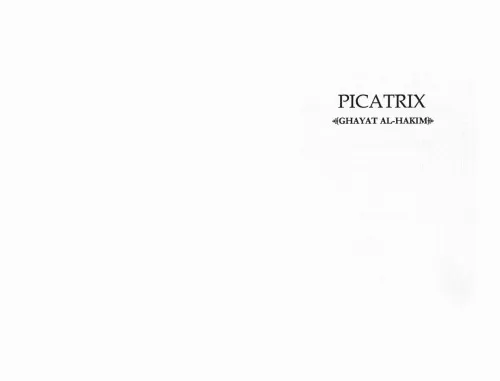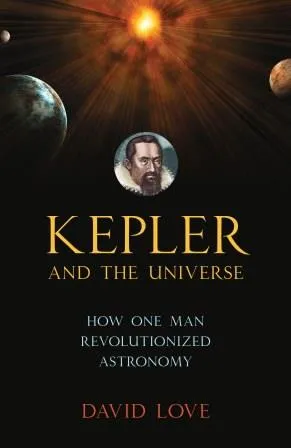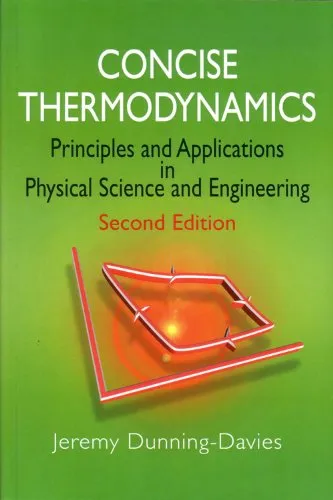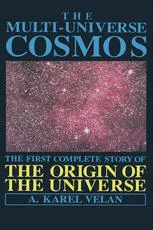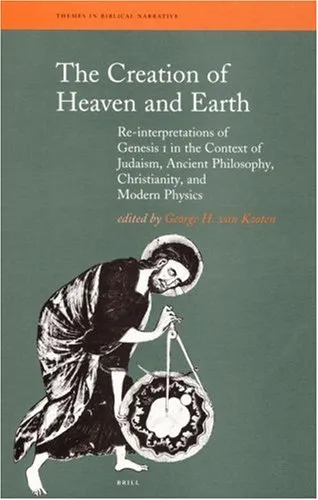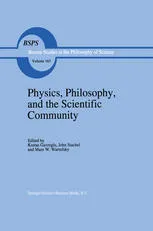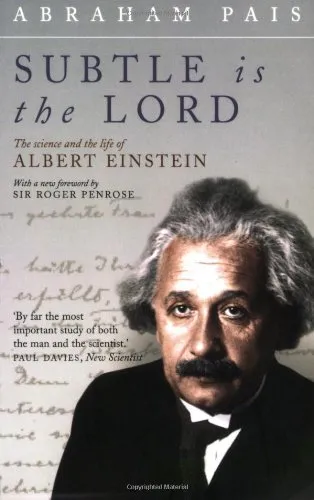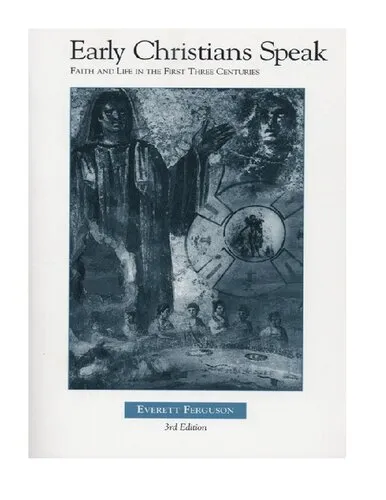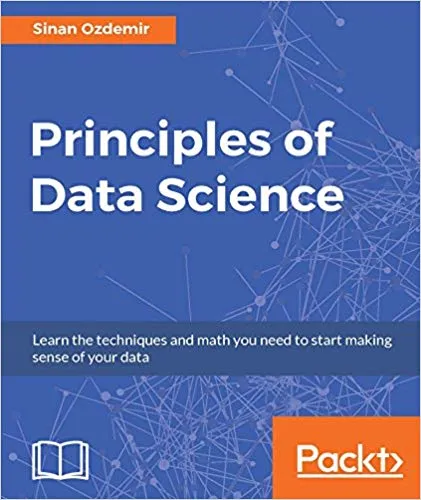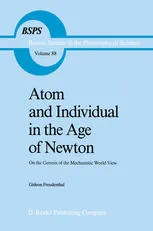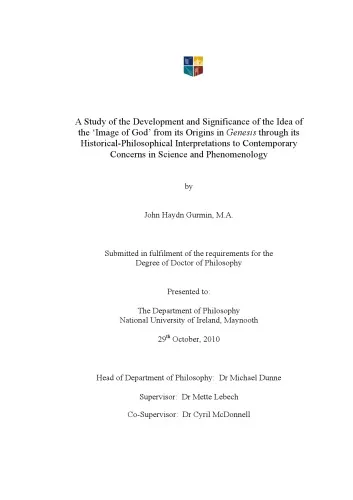Science and Creation in the Middle Ages: Henry of Langenstein (D. 1397 on Genesis)
4.0
بر اساس نظر کاربران

شما میتونید سوالاتتون در باره کتاب رو از هوش مصنوعیش بعد از ورود بپرسید
هر دانلود یا پرسش از هوش مصنوعی 2 امتیاز لازم دارد، برای بدست آوردن امتیاز رایگان، به صفحه ی راهنمای امتیازات سر بزنید و یک سری کار ارزشمند انجام بدینکتاب های مرتبط:
معرفی کتاب: Science and Creation in the Middle Ages: Henry of Langenstein (D. 1397 on Genesis)
کتاب Science and Creation in the Middle Ages: Henry of Langenstein (D. 1397 on Genesis) اثری پژوهشی از Nicholas H. Steneck است که نگاهی عمیق به رابطه علم و الهیات در دوران قرون وسطا دارد. تمرکز اصلی این اثر، بررسی تفسیر Henry of Langenstein درباره کتاب مقدس، بهویژه بخش Genesis، در ارتباط با نظریات علمی زمانه اوست. این کتاب به خواننده کمک میکند پیوند پیچیده علم، فلسفه و دین در یکی از پرچالشترین دورانهای تاریخ فکری بشر را درک کند. در ادامه بخشهای مختلفی راجع به این اثر ارزشمند ارائه میشود.
چکیدهای از کتاب
این کتاب نقش Henry of Langenstein، یکی از متفکران برجسته قرن چهاردهم، را در پالایش و توسعه تفکر علمی و الهیاتی بررسی میکند. او که در زمانی پر از تغییرات فکری زندگی میکرد، تلاش داشت تا بین اصول علمی و آموزههای کیهانی کتب مقدس ارتباط معناداری برقرار کند.
Steneck در این کتاب به بررسی نوشتههای Henry در مورد Genesis میپردازد و نشان میدهد چگونه او از علم روزگار خود، از جمله دانش نجوم و هندسه، برای تحلیل روایت آفرینش استفاده کرده است. هدف اصلی این کتاب نشان دادن این است که در قرون وسطا آنگونه که گاهی تصور میشود تعارض آشکاری میان علم و الهیات وجود نداشت، بلکه متفکرانی چون Henry به دنبال ادغام این دو حوزه بودهاند.
یافتههای کلیدی
- نشان دادن اهمیت کارهای Henry در تطبیق علم و دین در دورهای که شکاف میان این دو حوزه رو به افزایش بود.
- بررسی چگونگی استفاده متفکران قرون وسطا از منابع کلاسیک یونانی و اسلامی برای غنیسازی تفسیرهای خویش.
- تحلیل دقیق رابطه میان تفسیرهای الهیاتی از Genesis و نظریات علمی درباره ساختار کیهان.
- تاکید بر رویکرد منطقی Henry در مواجهه با پرسشهای متناقض میان علم و ایمان.
نقلقولهای معروف از کتاب
"Understanding divine creation requires not just faith, but also reason, for through reason we uncover the order bestowed upon the universe."
این جمله بازتابی از تلاش Henry در تأکید بر نیاز به همگرایی ایمان و عقل است. تفکر او همچنان در مطالعه علم و دین در عصر مدرن الهامبخش محققان است.
چرا این کتاب مهم است؟
اهمیت این کتاب تنها به دلیل بررسی تفکرات Henry of Langenstein نیست، بلکه این اثر ابعاد گستردهتری در روشنسازی تاریخچه تعامل میان علم و دین در اختیار پژوهشگران میگذارد. Nicholas H. Steneck با بیانی روان و پژوهشی، خواننده را به سفری عمیق در فضای فکری قرون وسطا دعوت میکند.
علاوه بر ارزش علمی، این کتاب به درک بهتر ما از چگونگی شکلگیری مباحثات مدرن میان علم و الهیات کمک میکند. همچنین درسی مهم ارائه میدهد که در مواجهه با مسائل پیچیده، نیاز به تعامل بین دیدگاههای مختلف همواره ضروری است.
Introduction to "Science and Creation in the Middle Ages: Henry of Langenstein (D. 1397 on Genesis)"
Welcome to a comprehensive exploration of medieval scholarship at the intersection of science, theology, and intellectual history. "Science and Creation in the Middle Ages: Henry of Langenstein (D. 1397 on Genesis)" delves into the life and work of one of the late Middle Ages' most fascinating thinkers, Henry of Langenstein. This book unpacks his commentaries on the Book of Genesis, offering readers a multidimensional analysis of how scripture, natural science, and philosophy converged during this period. By examining Henry’s teachings, we uncover not only his theological insights but also how medieval scholars approached the natural world and humanity's place within it.
Designed for both academics and general readers interested in medieval thought, this book presents a detailed view of how individuals like Henry mediated between creation doctrines and contemporary scientific understanding. The text serves as a window into a pivotal chapter in intellectual history, providing context for debates central to science and theology even today.
A Detailed Summary of the Book
Henry of Langenstein, a fourteenth-century theologian and scholar, was among the foremost minds of his era grappling with the challenges presented by integrating scriptural interpretation with emergent scientific theories. This book centers on his exegesis of the Book of Genesis, where he scrutinizes foundational questions about the universe's origins, the nature of time and matter, and the theological implications of creation.
Through rigorous textual analysis, the book reveals how Henry adhered to orthodox theological frameworks while also engaging with natural philosophy and the scientific knowledge of his time. Topics like the creation of the cosmos, the role of divine intervention, and the natural order are addressed in Henry’s work, reflecting a broader medieval attempt to balance religious belief with rational inquiry.
Additionally, the text situates Henry’s work within the intellectual currents of the late Middle Ages. It explores the broader scholastic tradition and how figures like Aristotle, Augustine, and Aquinas influenced Henry’s views. By contextualizing his ideas historically and philosophically, this book illuminates the richness and complexity of medieval thought, uncovering its relevance for modern conversations about faith and science.
Key Takeaways
- Henry of Langenstein’s interpretation of Genesis serves as a bridge between theological doctrine and natural science in the Middle Ages, showcasing an early effort to reconcile faith with empirical observation.
- The text provides an in-depth look at medieval approaches to cosmology, creation, and the role of divine providence in the natural order.
- By understanding Henry’s work, readers gain insight into the intellectual debates that shaped medieval universities and theological discourse.
- This book demonstrates how historical perspectives on science and religion inform contemporary debates, prompting us to reflect on our own assumptions about the relationship between the two fields.
Famous Quotes from the Book
"In Henry's commentary on Genesis, the act of creation is not merely a divine pronouncement but also a manifestation of order, causality, and purpose, inviting human beings into the dual pursuits of faith and reason."
"The tensions between theology and natural philosophy in the Middle Ages were not barriers to knowledge but rather openings for rigorous intellectual exploration."
"The medieval mind did not separate the sacred from the secular; instead, it sought harmony between the natural world and the divine Word."
Why This Book Matters
In an era where debates about the relationship between science and religion often feel contentious and polarized, "Science and Creation in the Middle Ages: Henry of Langenstein (D. 1397 on Genesis)" offers a refreshing historical perspective that emphasizes integration rather than division. Henry of Langenstein’s approach to scripture and science highlights the possibilities of interdisciplinary thinking even in uncertain times. This book not only revives interest in a largely overlooked medieval thinker but also challenges certain modern assumptions about the incompatibility of faith and reason.
As a scholarly endeavor, this volume serves an essential role in medieval studies, bridging the gap between specialized academic research and more accessible treatments of history and theology. For students of theology, history, or philosophy, this work provides a valuable resource to understand how medieval thinkers addressed questions that remain relevant today. For the general reader, it offers a fascinating glimpse into a world where science and creation were deeply intertwined in thought and practice.
Ultimately, this book contributes to a broader understanding of human inquiry—both past and present—into the mysteries of existence, creation, and the search for truth.
دانلود رایگان مستقیم
شما میتونید سوالاتتون در باره کتاب رو از هوش مصنوعیش بعد از ورود بپرسید
دسترسی به کتابها از طریق پلتفرمهای قانونی و کتابخانههای عمومی نه تنها از حقوق نویسندگان و ناشران حمایت میکند، بلکه به پایداری فرهنگ کتابخوانی نیز کمک میرساند. پیش از دانلود، لحظهای به بررسی این گزینهها فکر کنید.
این کتاب رو در پلتفرم های دیگه ببینید
WorldCat به شما کمک میکنه تا کتاب ها رو در کتابخانه های سراسر دنیا پیدا کنید
امتیازها، نظرات تخصصی و صحبت ها درباره کتاب را در Goodreads ببینید
کتابهای کمیاب یا دست دوم را در AbeBooks پیدا کنید و بخرید
1333
بازدید4.0
امتیاز0
نظر98%
رضایتنظرات:
4.0
بر اساس 0 نظر کاربران
Questions & Answers
Ask questions about this book or help others by answering
No questions yet. Be the first to ask!
